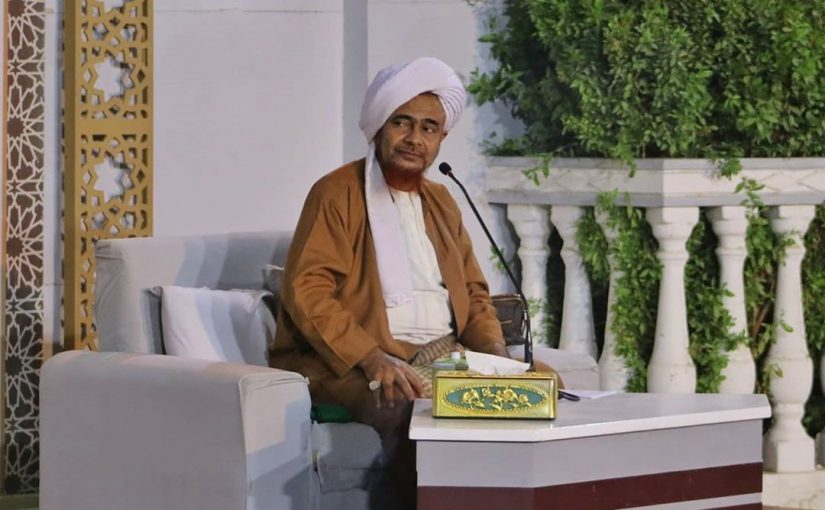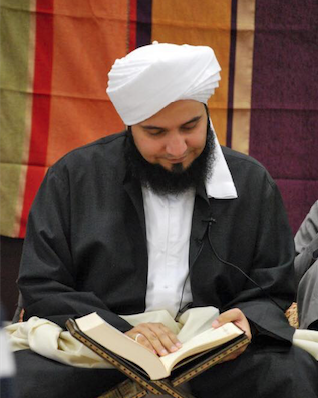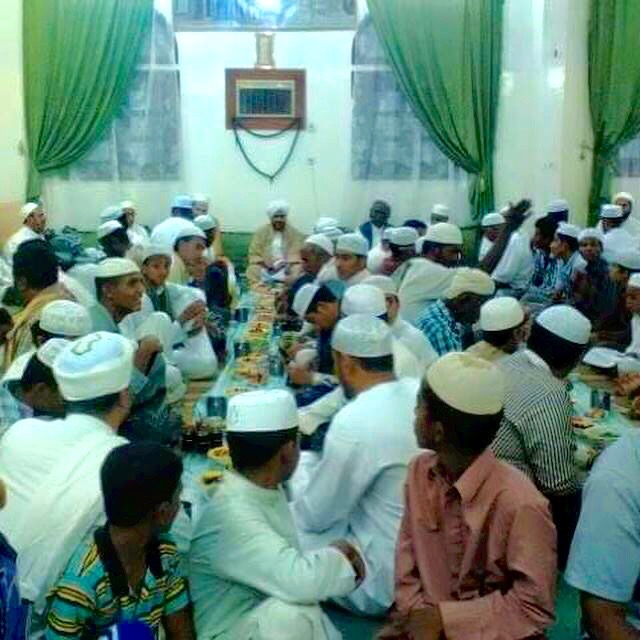The Messenger of Allah ﷺ said that whoever fasts Ramadan and then fasts six days in the month of Shawwal has fasted the whole year, since each good deed is multiplied by ten. Thus the thirty days of Ramadan equal three hundred days and the six days equal sixty which together make up the whole year of three hundred and sixty days. The scholars say that what is meant is that one has the reward of a whole year’s compulsory fasting, not merely supererogatory fasting. The Prophet ﷺ also said that whoever completes Ramadan and the six days will emerge as free from sins as a new born baby. It is thus recommended to fast any six days of Shawwal. Continue reading The Six Days of Shawwal
Author: admin
On Preserving Allah’s Gifts
Here are two ways of preserving the gifts that Allah has bestowed upon us in these blessed times:
- Sayyidi Habib Umar bin Hafiz (may Allah protect him and benefit us by him) teaches us to say at the end of Ramadan:
Salawat with Allah’s Beautiful Names: Ya Mun’im (Bestower of Blessings)
Sayyidi Habib Umar bin Hafiz teaches us to thank Allah for the immense blessings that He has bestowed upon us, the greatest of those being our beloved Prophet ﷺ . He also directs us to ask for an increase in those blessings, for gratitude and for those blessings to be preserved. Continue reading Salawat with Allah’s Beautiful Names: Ya Mun’im (Bestower of Blessings)
Appreciating Barakah
Sayyidi Habib Umar bin Hafiz (may Allah protect him and benefit us by him) discusses the concept of barakah.
The Messenger of Allah ﷺ instructed people to lick their fingers after eating and to clean the dish, saying: “You do not know in what part of the food the barakah lies.”
He also said: “When a morsel of your food falls down, you should pick it up and remove any dirt and then eat it. Do not leave it for the Devil, for you do not know in what part of the food the barakah lies.” Continue reading Appreciating Barakah
On Spreading Peace
Answered by Sayyidi Habib Umar bin Hafiz (may Allah protect him and benefit us by him)
What is the best way of obeying the Prophetic command to spread peace, feed people, honour the ties of kinship and pray at night?
We do this by not harming any human or animal and by having a good transaction with inanimate objects such that we walk upon the earth in humility. We should look after our relatives and neighbours and speak well whenever we meet anyone. We should pray in the night even if it is only two units of prayer. We should give charity, give people gifts and invite them to our houses.
On Non Muslim Parents Who Engage in Forbidden Things
Answered by Sayyidi Habib Umar bin Hafiz (may Allah protect him and benefit us by him)
How do we deal with non-Muslim parents when they engage in things which are forbidden?
You should show mercy to them and wish that Allah guides them and use whatever means are available to enable this. Treat them well at all times but avoid their company when they are doing things which are inappropriate or are disobeying Allah. Give them gifts and assist them in all that is permissible.
Indeed with Hardship Comes Ease
At the most difficult of times and in the most testing of circumstances, while the Muslims were being besieged by the Confederates (al-Ahzab), the Prophet ﷺ gave his Companions the good news that Syria and Yemen would be opened to Islam.
Allah’s saying: “Indeed with hardship comes ease” was thus manifested in his noble state.
Similarly, the believer finds deep certainty within himself at times of crisis, and his inner state proclaims:
‘If tribulations increase in severity, they will then depart and the coming of dawn is close.’
—Habib Ali al-Jifri (may Allah preserve him and benefit us by him)
Salawat with Allah’s Beautiful Names: Ya Dha’l-Jalal wa’l-Ikram
Allah says: “Blessed be the name of your Lord, the Lord of Majesty and Generosity (55:78).” The Prophet ﷺ would often call upon Allah by this name and it has been narrated that it is Allah’s greatest name. It combines the attributes of majesty and beauty and inspires in the slave both hope and fear. Continue reading Salawat with Allah’s Beautiful Names: Ya Dha’l-Jalal wa’l-Ikram
Tafsir of Short Surahs: Surat al-Qadr
A summary of Habib Umar’s commentary on Surat al-Qadr, Ramadan 1436.
Allah says:
Indeed, We sent it down in the Night of Power
There are two meanings to Allah sending down the Qur’an. The first meaning is the first revelation which was revealed to the Prophet ﷺ in the Cave of Hira on Sunday night on the eve of the 17th Ramadan. That night was also Laylat al-Qadr. Continue reading Tafsir of Short Surahs: Surat al-Qadr
Intentions for Accepting an Invitation
What should our intentions be in accepting an invitation to someone’s house?
Imam Abu Talib al-Makki tells us in his masterpiece, Qut al-Qulub, explained by Sayyidi Habib Umar bin Hafiz.
Accepting an invitation is an act of worship. If you have a good intention you will be rewarded for it. If you accept the invitation for some worldly end, however, you will not be rewarded.
You should have seven intentions: Continue reading Intentions for Accepting an Invitation









